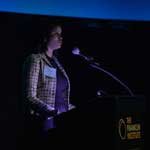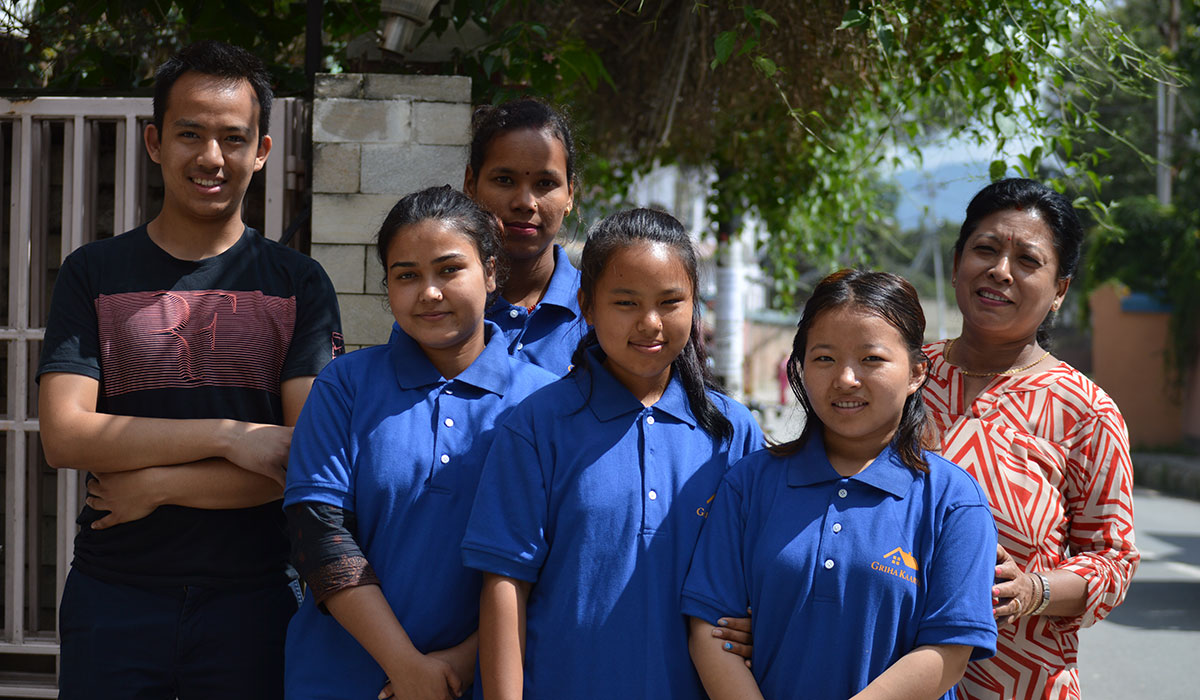Raycell Diaz Hernandez ’24 shares importance of building bridges among generations of Gettysburgians


Gettysburg College teaches its students that the core of being an entrepreneur is more than being your own boss, launching a new business, or employing a new idea. Being an entrepreneur is perpetually looking at the world through the lens of innovation—it’s seeing the world for what it is and what it could be.
Spending most of his life in Nepal, Pranav Kayastha ’20 is familiar with the many challenges his home country faces, such as rapid population growth, unemployment, and poverty. Coming to Gettysburg to study mathematics was a change in pace from what he knew in Nepal, and this new way of life, paired with the College’s rigorous liberal arts curriculum, encouraged him to develop critical thinking and problem-solving skills. He then connected this way of thinking to home—harvesting ideas on how he could help Nepalis attain a better life.
Kayastha was the recipient of a 2019 Entrepreneurial Fellowship for his business pitch, “Griha Kaarya,” which is a social enterprise with aspirations to smooth out friction in Nepal’s job market and to combat poverty by making part-time work safer and more easily accessible. As part of the Entrepreneurship and Social Innovation Initiative, student fellows like Kayastha have the opportunity to connect with faculty and alumni mentors, who use their many years of entrepreneurial experience to advise and guide them as they begin turning their ideas into something more tangible.
Last year, Kayastha noticed that his family was struggling to source human capital, even though he knew a large number of Nepalis were looking for work. “We were doing some renovation in our house, and it was a complete hassle to find plumbers, cleaners, and other workers,” he said, noting that even when workers were found, the quality of service was often poor.
More than just Pranav’s family have been affected by the disconnect in the job market, and Pranav suspects it to be rooted in the community’s general unawareness of what part-time work exists in Nepal.
This summer, Kayastha has returned to Nepal to launch Griha Kaarya and recruit and train his first workers, who will serve as pioneers of the program. During its startup, the service will be limited to connecting trained employees to households with housework needs, which is high-demand work, as many Nepali women are seeking jobs outside of the home and are no longer able to fulfill the traditional role of homemaker. However, Kayastha has plans to build on what services are offered once the website progresses.
While Kayastha said similar work-recruiting companies exist in Nepal, what will make his service stand out is its forward-thinking initiative. It will build off of the country’s existing, but currently underutilized, platform of technology and the internet.
“I think what makes us unique is the context, where we are approaching those in need of jobs and introducing them to this idea of an online platform, and giving them the power that the internet has to offer,” Kayastha said. “We are not advancing the frontier of technology, but we are broadening the reach of technology.”
With the driving forces of Griha Kaarya being unemployment and poverty, there will be no cost for workers to utilize the service. Each worker will also receive free training, which will equip them with the skills to not only complete a job well, but to also have the foundation to obtain future work opportunities. To fund the training of additional workers and eventual updates in technology, clients will pay a subscription fee of 100 rupees, or just under $1 a month.
Providing support to Kayastha as he begins the launch process are two friends/employees, Nayara Paudyal ’22 and Raunak Shrestha, who attends New York University Abu Dhabi, and several faculty and alumni mentors.
Carol Clark ’61, a member of the Entrepreneurial Fellowship Advisory Council, saw her start as an entrepreneur in 1981 when she co-founded MindLeaders, an e-learning and organizational development company, and has remained in the business world for the last 30 years. She now serves as an angel investor for Social Venture Circle, Golden Seeds, and Ohio TechAngels, all which support start-up businesses, similar to the mentorship opportunity she is providing Kayastha.
“I asked Pranav one question: Are you really solving a problem? I visited Nepal many years ago, but I didn’t know if the job market was a large-scale problem, and he knows his culture better than I do,” Clark said. “He said yes, and showed me a recent article from a Nepali newspaper, where the prime minister addressed the disconnect in the job market that Pranav is actively trying to solve. I wanted to make sure that there is a market and that he is listening to his customers, as they are the heart of any good business. He has made it very clear to me that he is.”
Starting small, Kayastha’s short-term goal is to connect at least 15 workers to over 150 households, but knowing that substantially more than 15 people in Nepal are struggling to find work, his efforts will not end there. His vision is much larger.
“I hope that people who were previously unable to find a job or earn a sustainable income will be able to make a better living through Griha Kaarya,” he said. “I hope it improves the poverty and unemployment scenario of Nepal by giving opportunity.”
Because of the opportunity Kayastha received through his 2019 Entrepreneurial Fellowship, he is excited to share the wealth of opportunity with those who need it most in Nepal—further advocating for the how the great work of Gettysburgians lives beyond the classroom and across the world.
By Molly Foster
Posted: 07/12/19